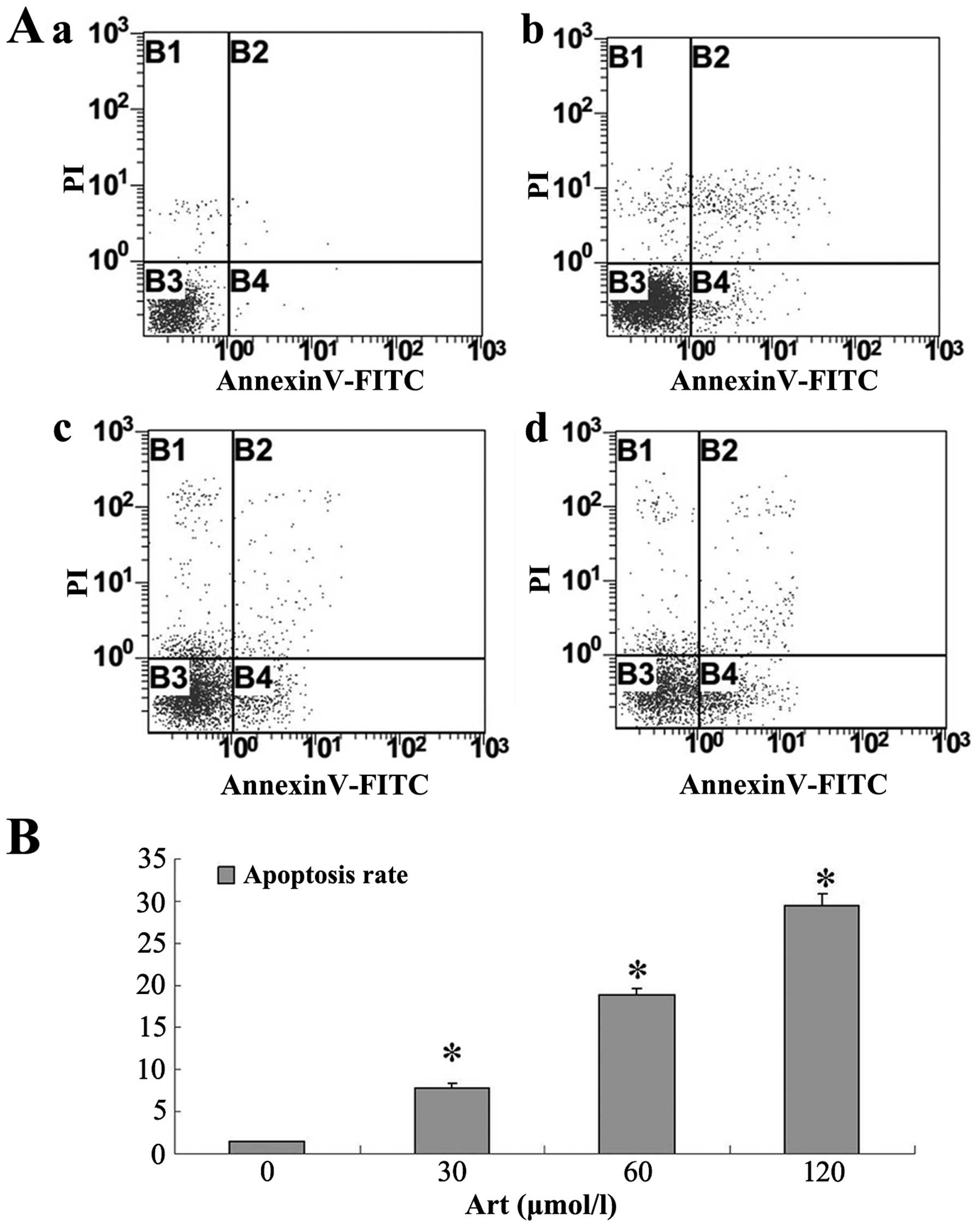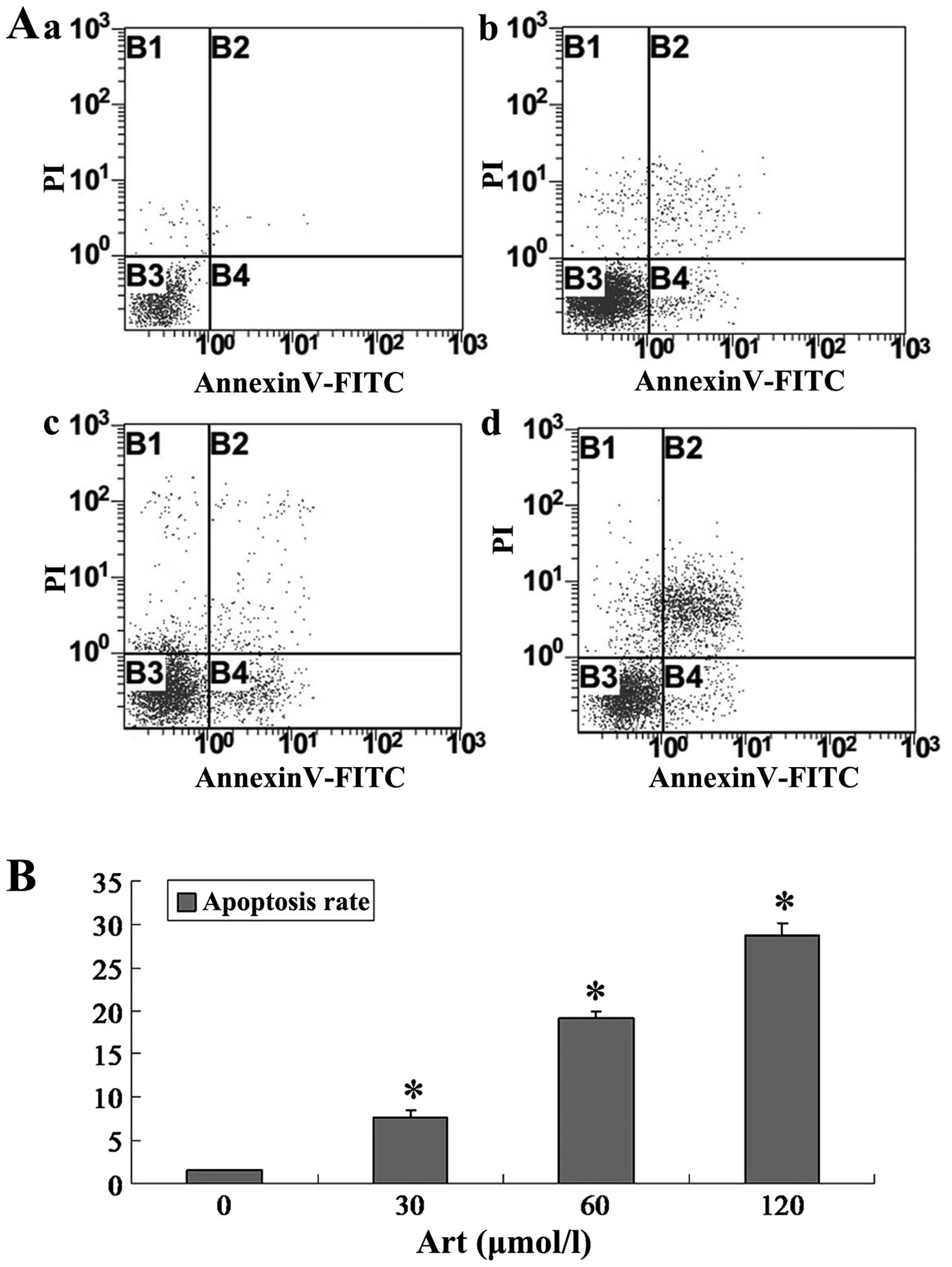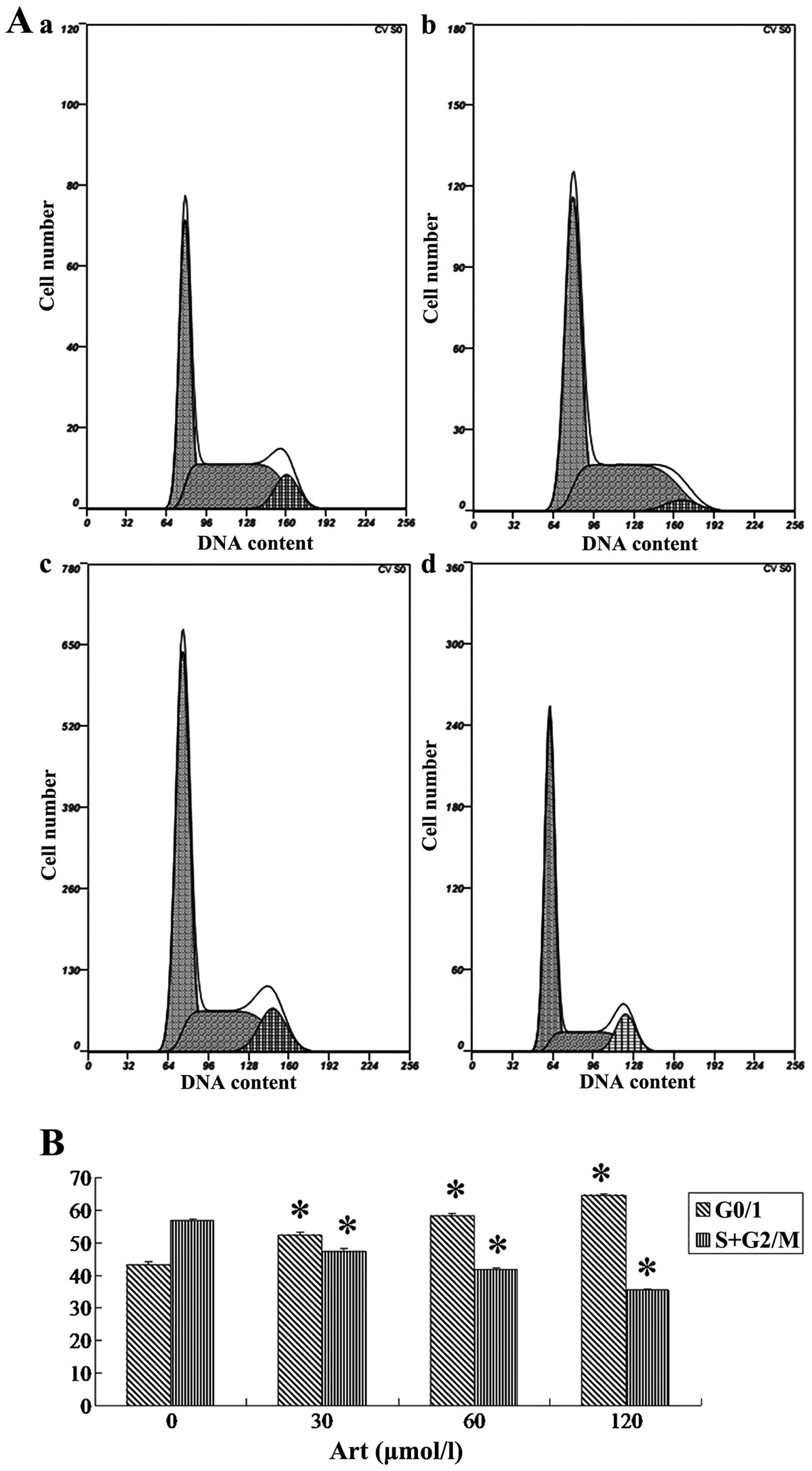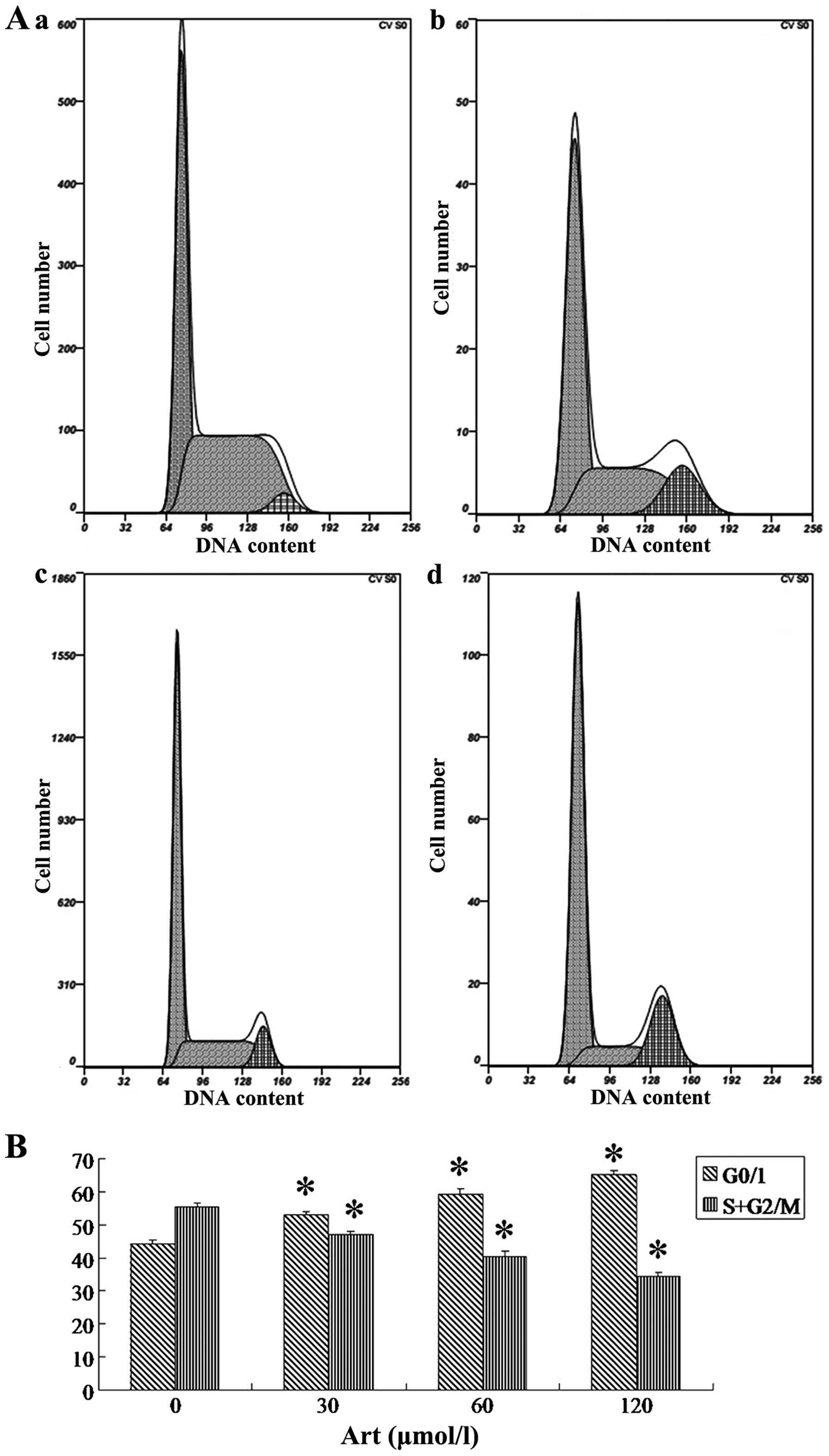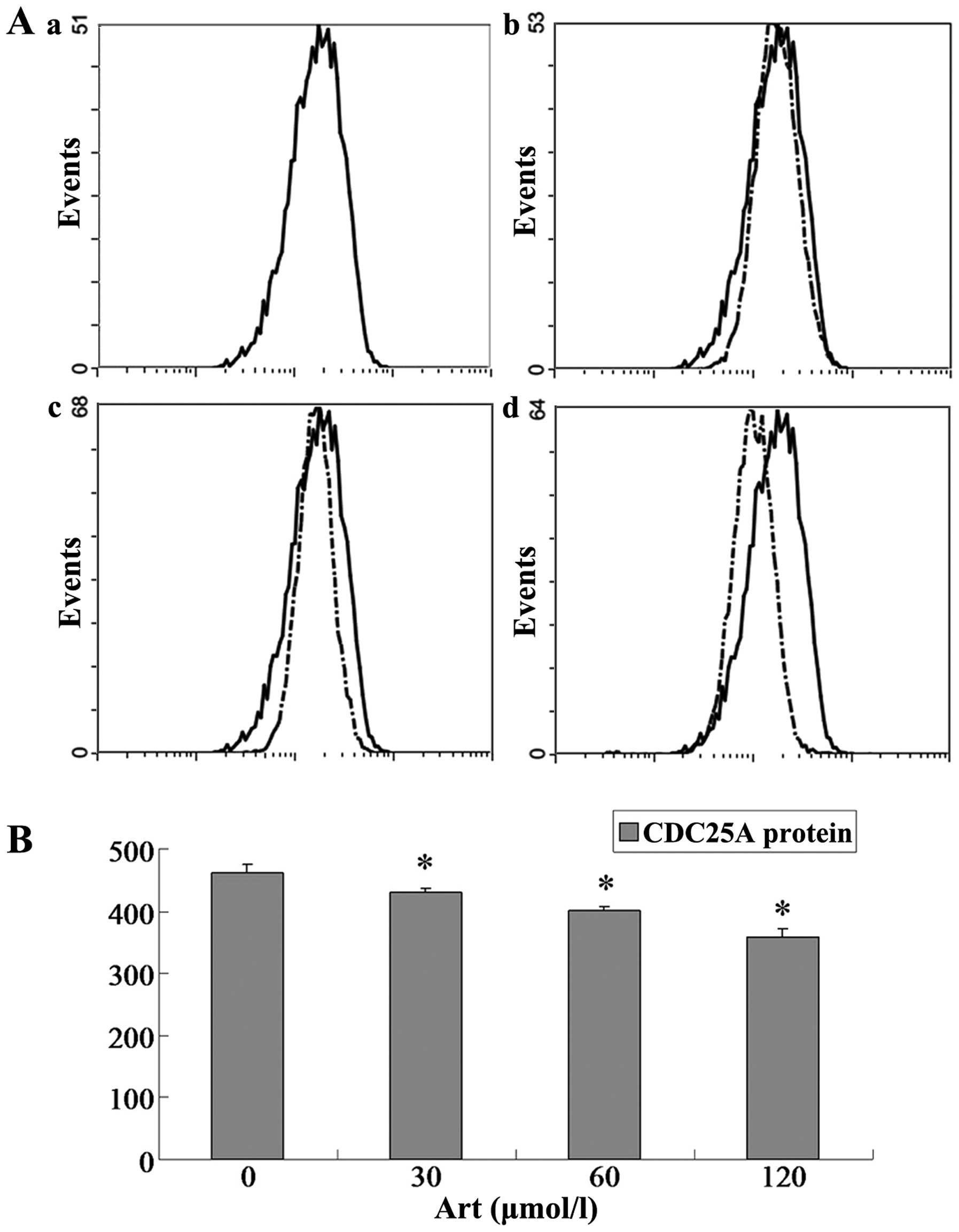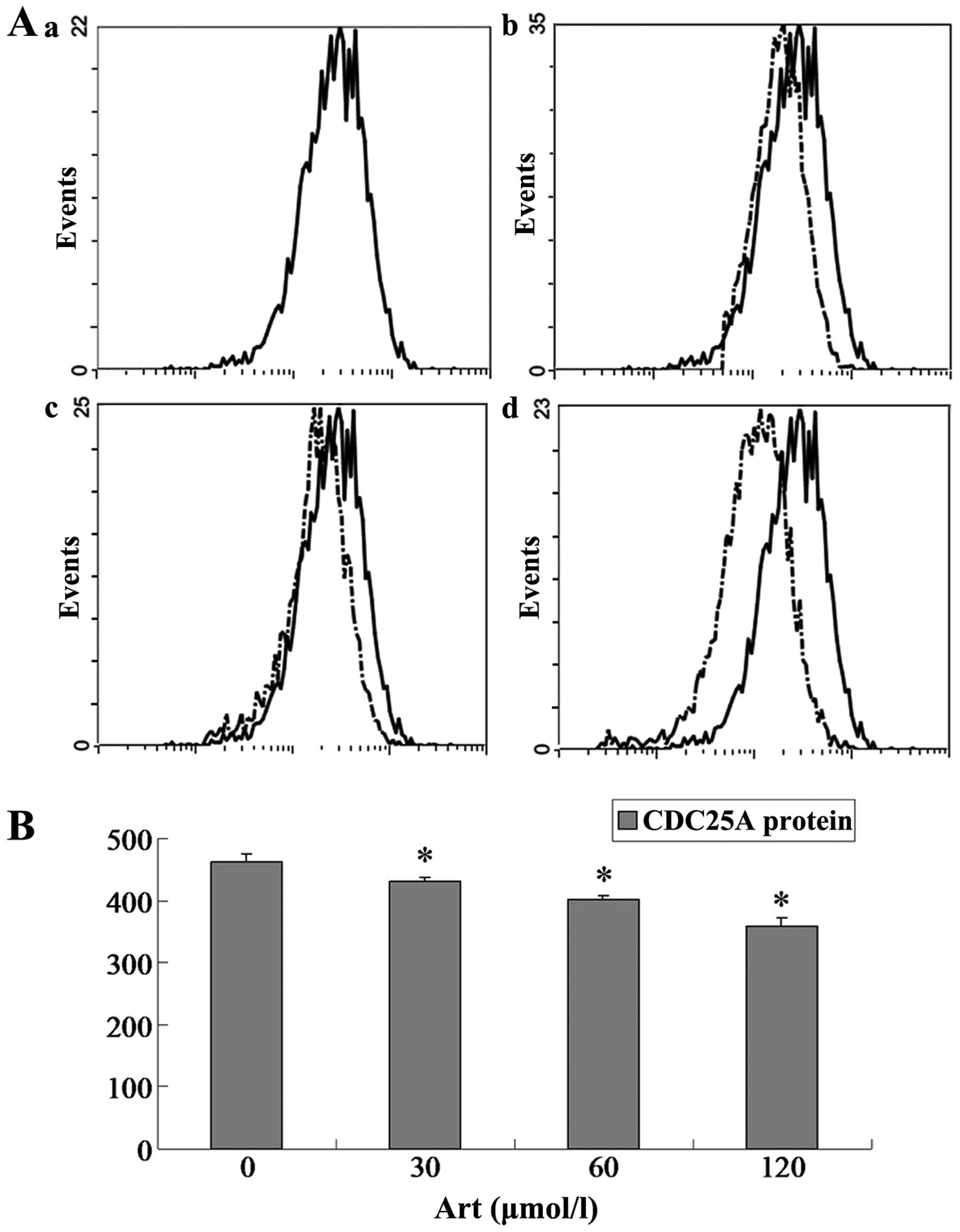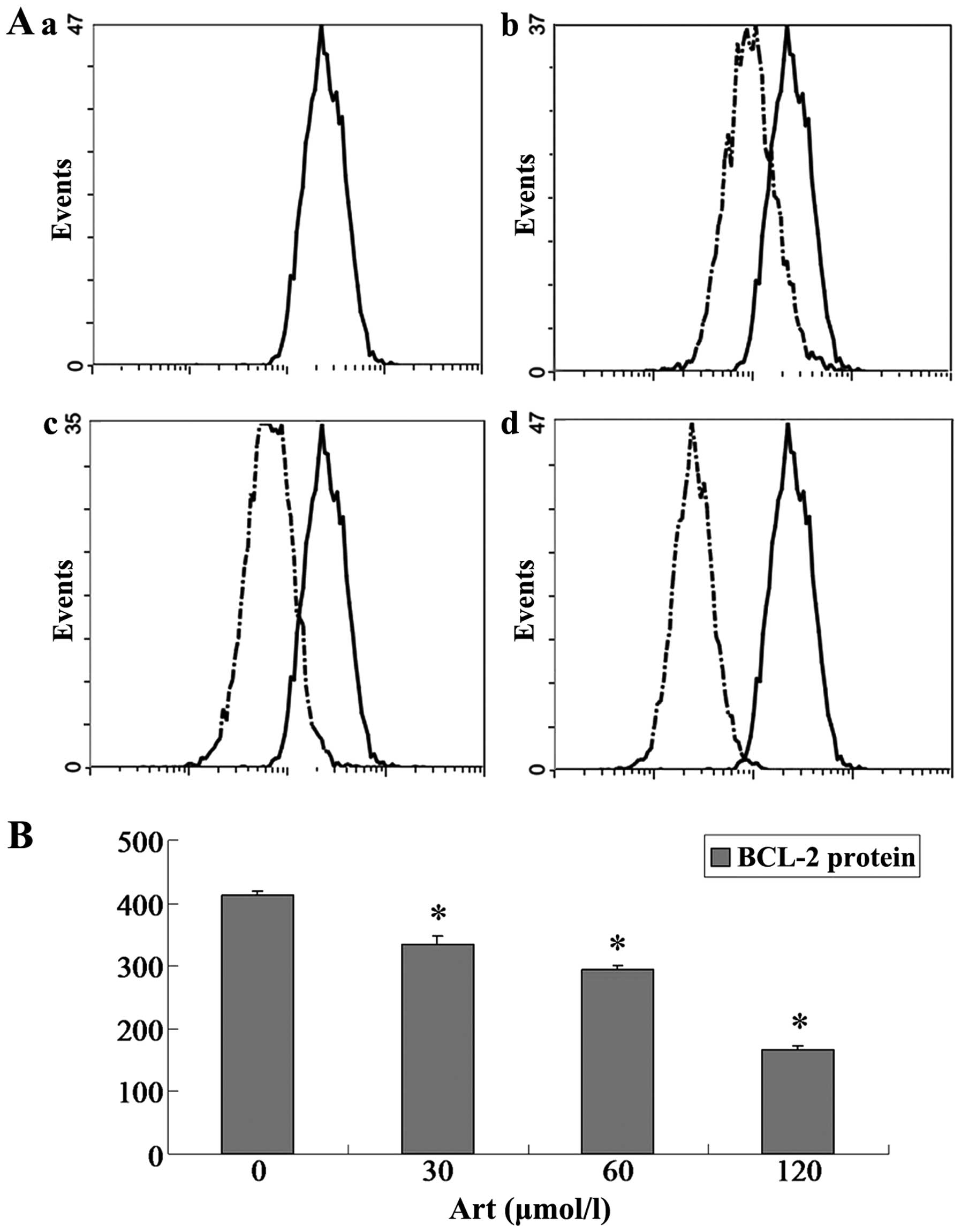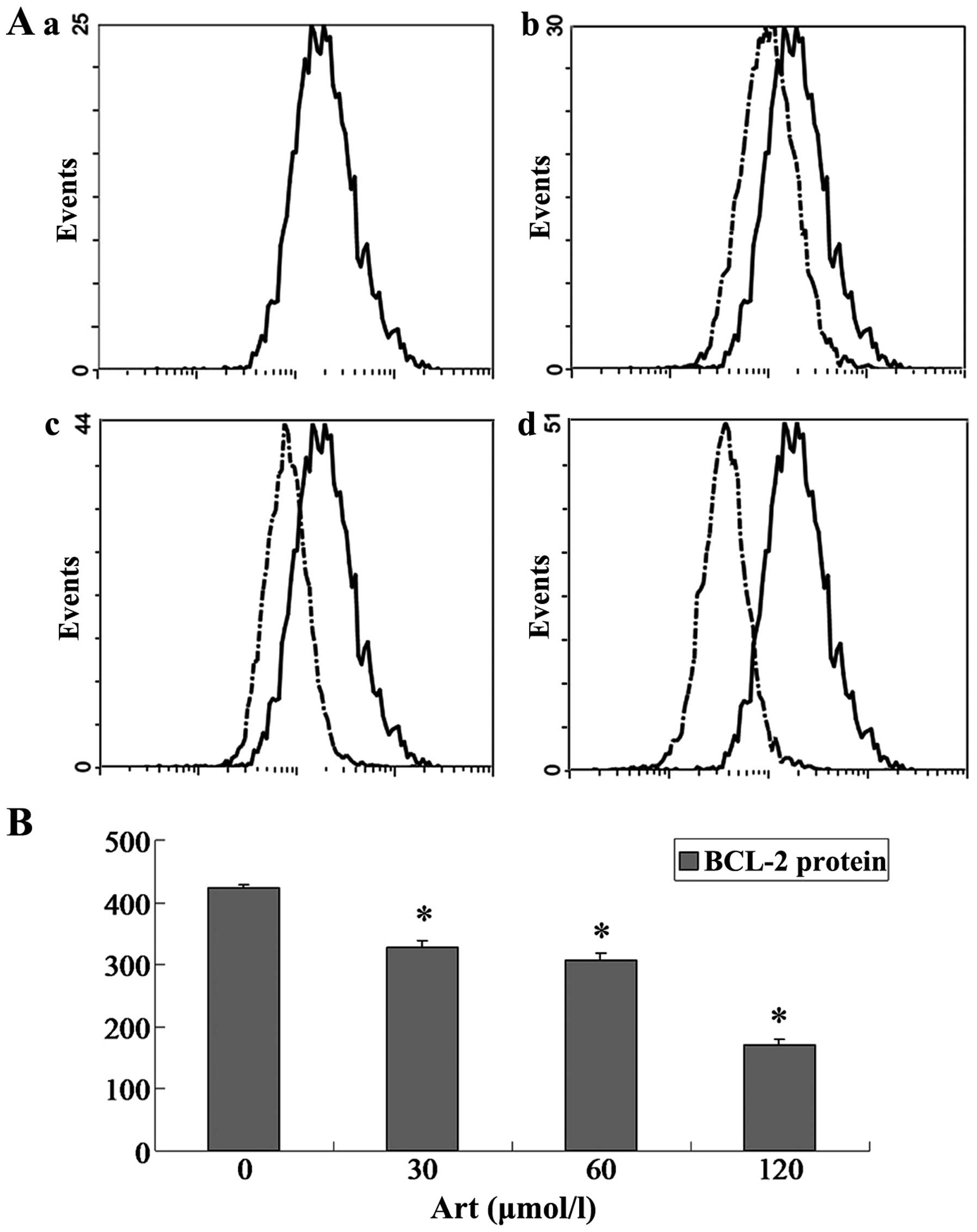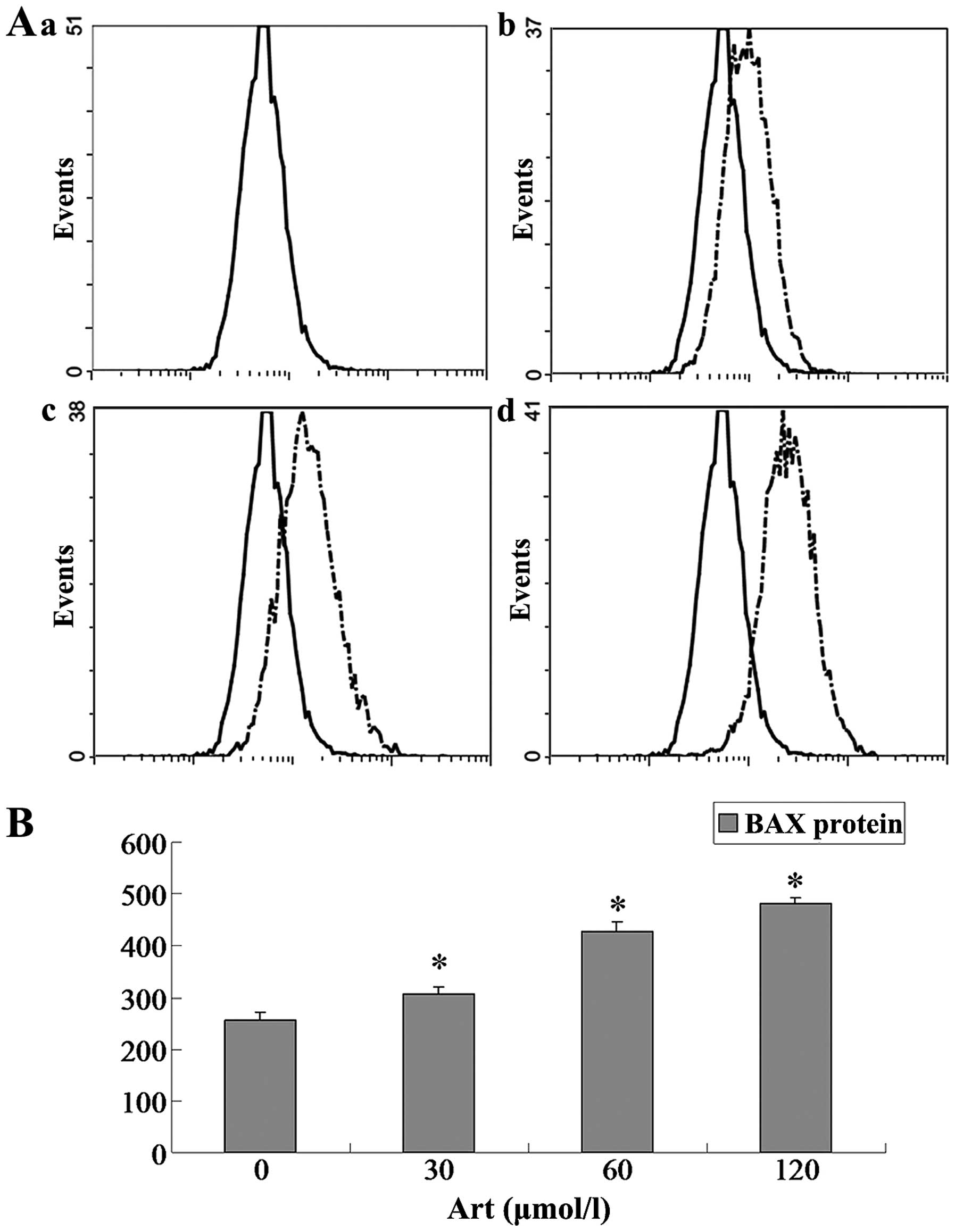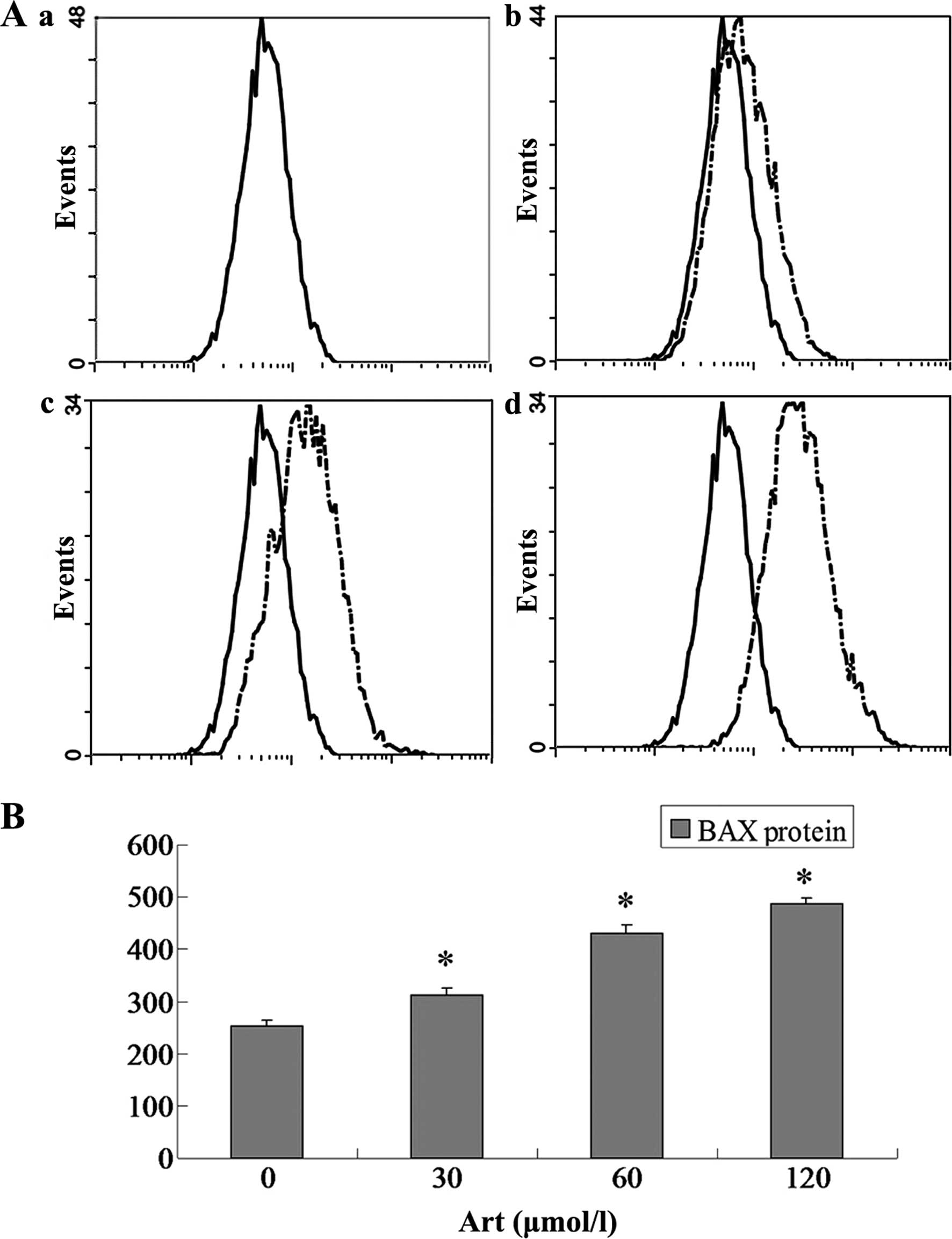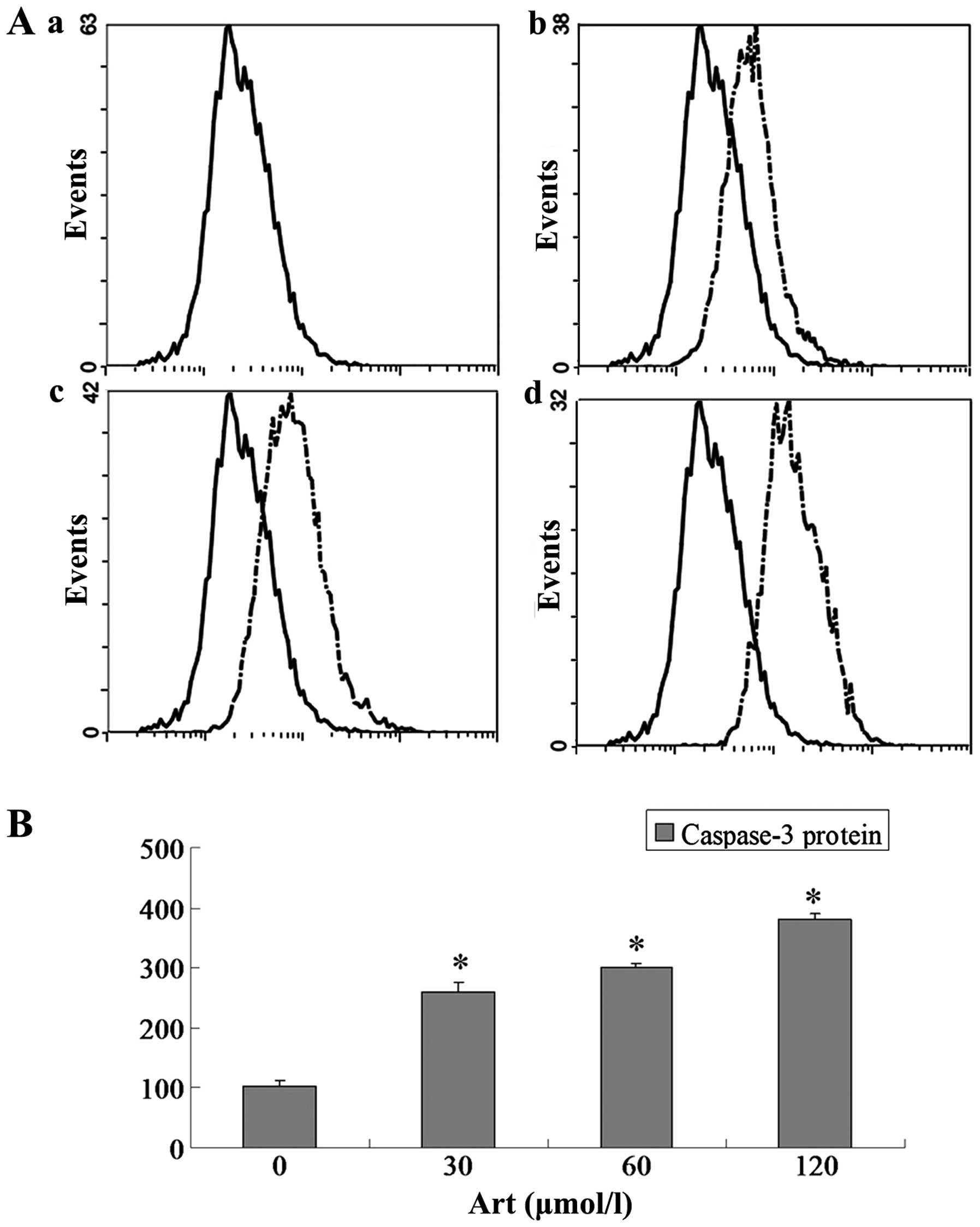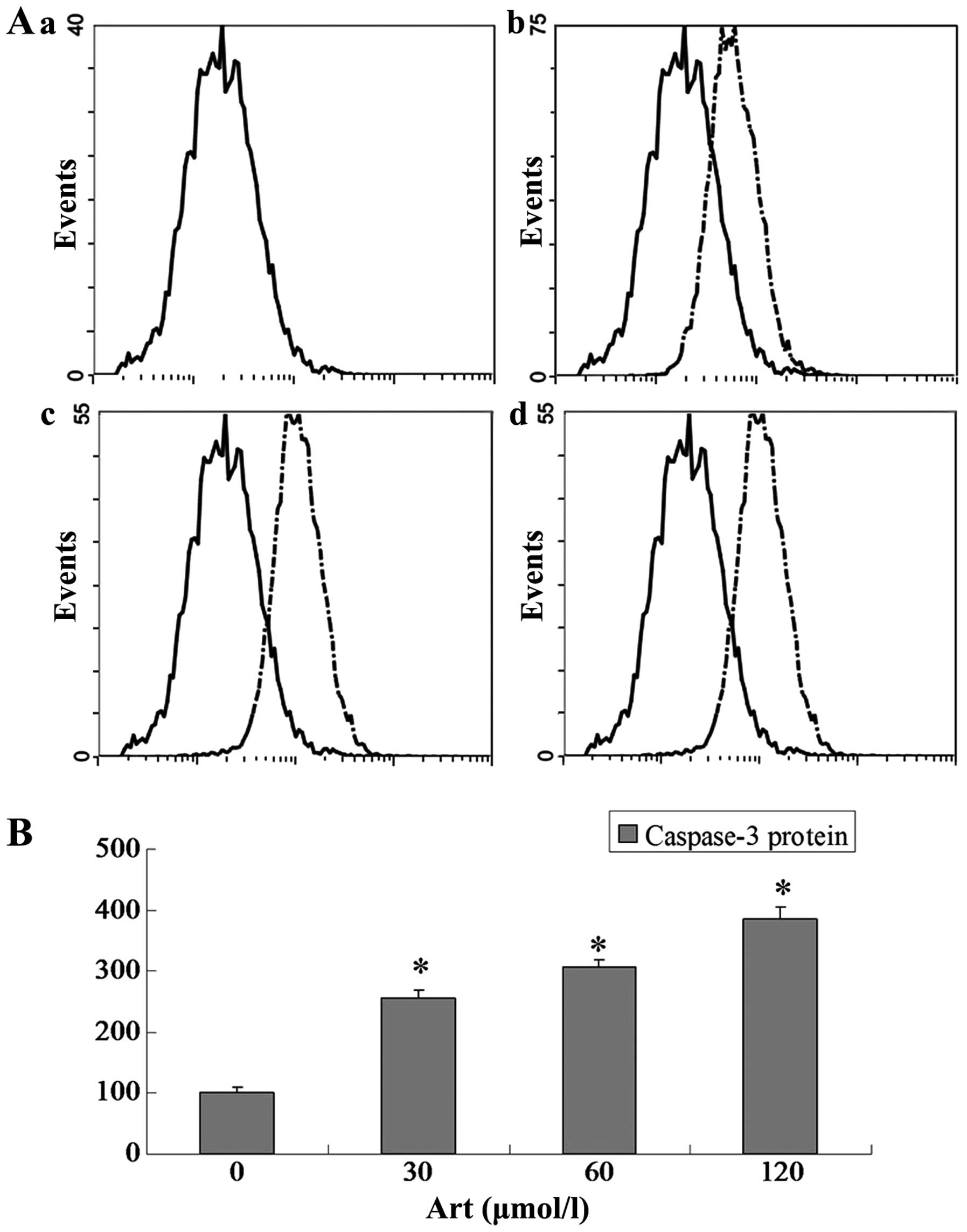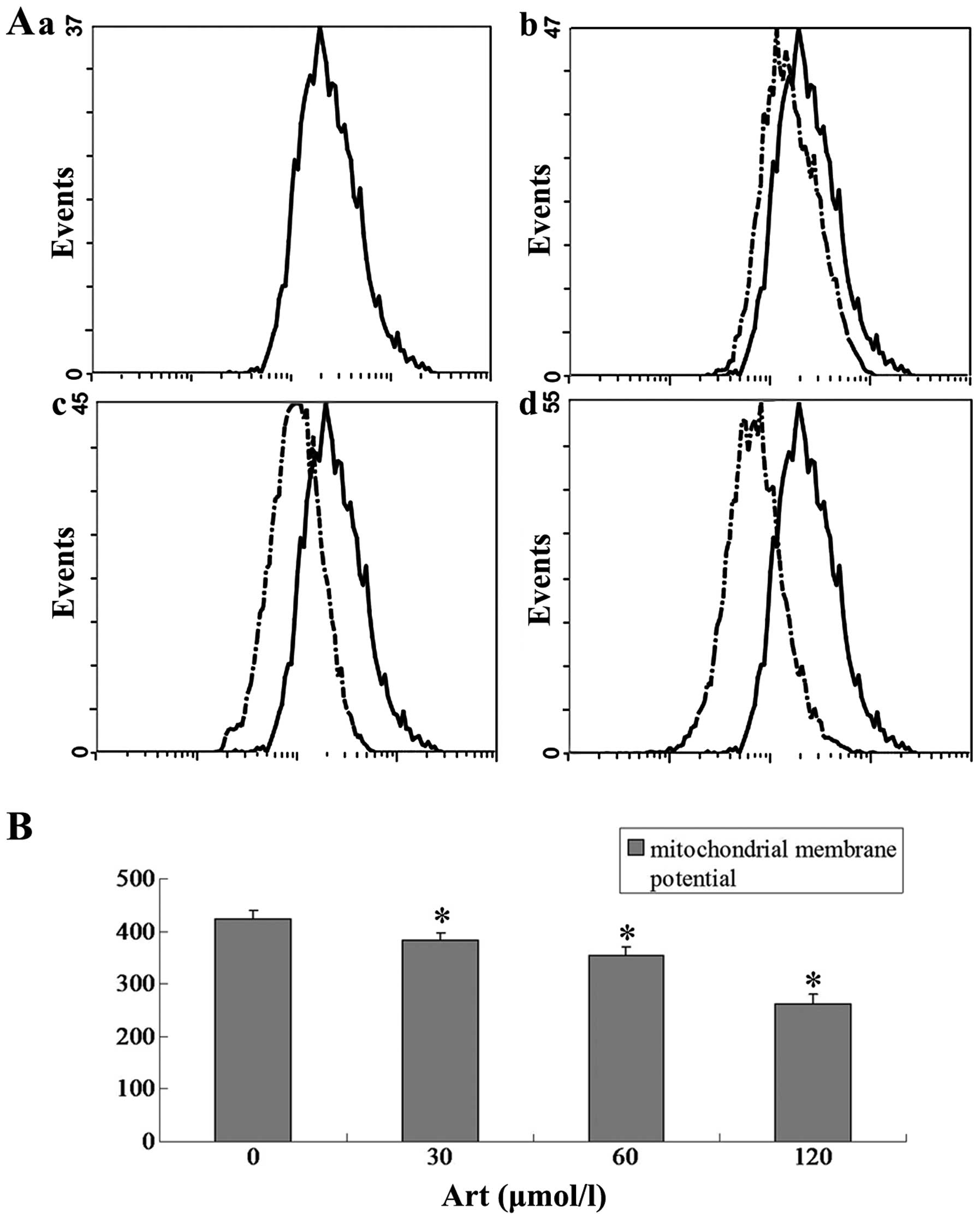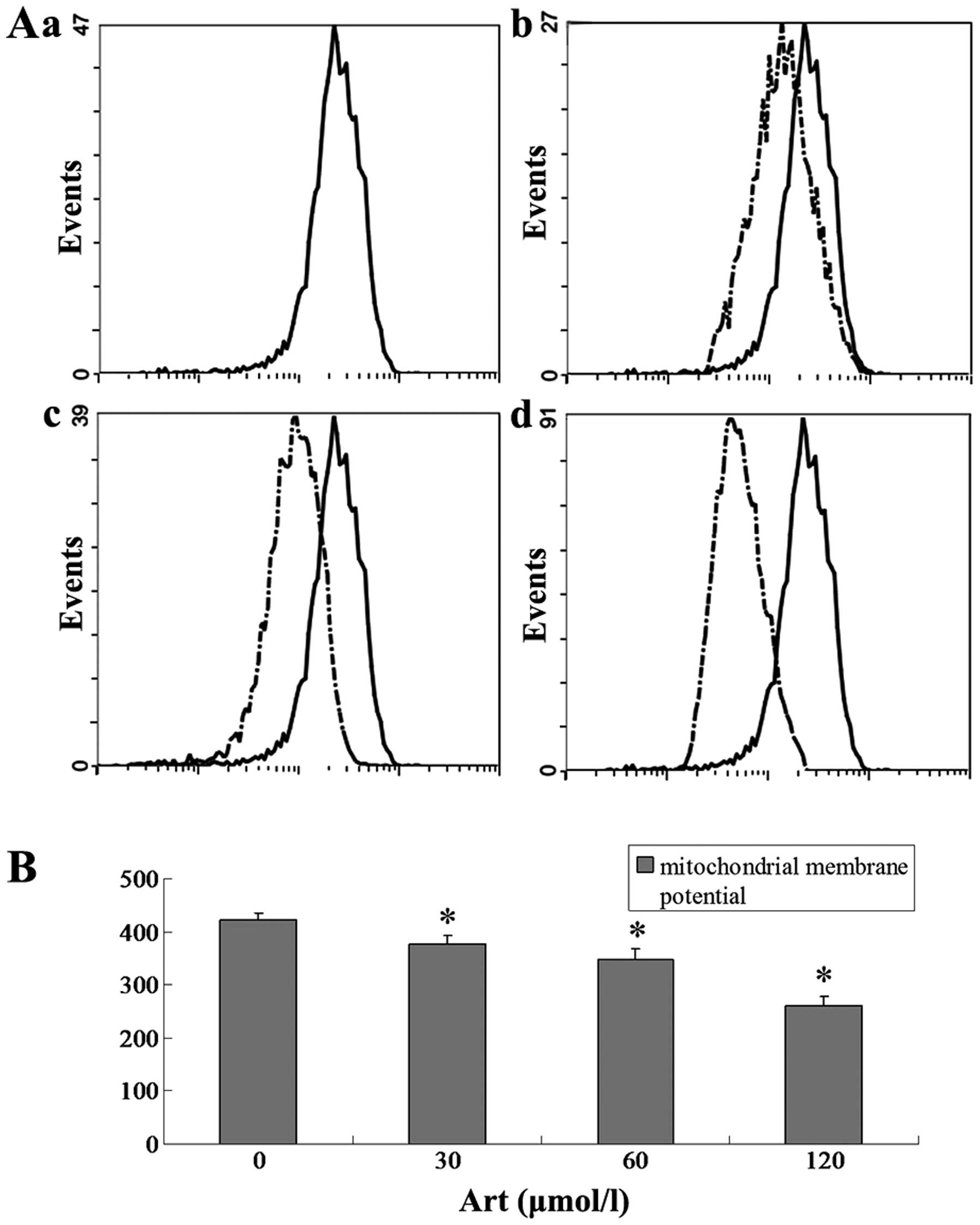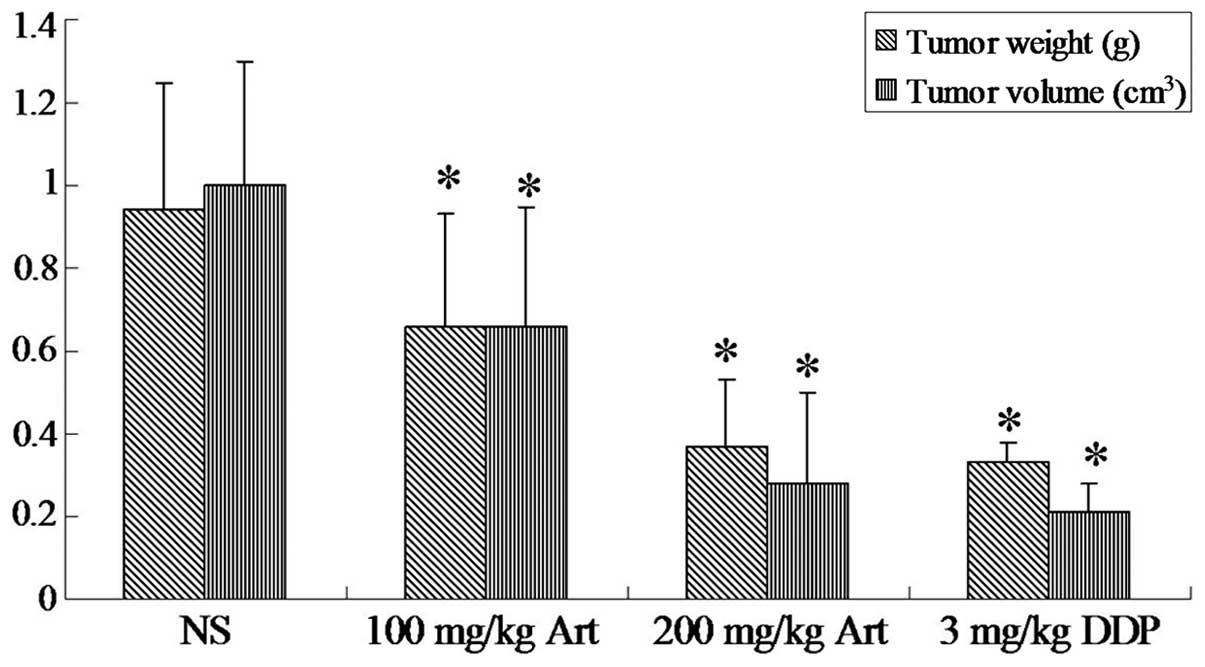|
1
|
He SP, Tan GY, Li G, et al: Development of
a sensitive monoclonal antibody-based enzyme-linked immunosorbent
assay for the antimalaria active ingredient artemisinin in the
Chinese herb Artemisia annua L. Anal Bioanal Chem. 393:1297–1303.
2009. View Article : Google Scholar
|
|
2
|
Tanaka H, Putalun W, De-Eknamkul W,
Matangkasombut O and Shoyama Y: Preparation of a novel monoclonal
antibody against the antimalarial drugs, artemisinin and Art.
Planta Med. 73:1127–1132. 2007. View Article : Google Scholar : PubMed/NCBI
|
|
3
|
Harris P, Price S, Senthuran S,
Cochupanachimootil J and Norton R: Automated erythrocytapheresis
for severe falciparum malaria. Intern Med J. 41:60–63. 2011.
View Article : Google Scholar : PubMed/NCBI
|
|
4
|
McLean WG and Ward SA: In vitro
neurotoxicity of artemisinin derivatives. Med Trop (Mars). 58(Suppl
3): 28–31. 1998.
|
|
5
|
Efferth T, Dunstan H, Sauerbrey A, Miyachi
H and Chitambar CR: The anti-malarial Art is also active against
cancer. Int J Oncol. 18:767–773. 2001.PubMed/NCBI
|
|
6
|
Hamacher-Brady A, Stein HA, Turschner S,
et al: Art activates mitochondrial apoptosis in breast cancer cells
via iron-catalyzed lysosomal reactive oxygen species production. J
Biol Chem. 286:6587–6601. 2011. View Article : Google Scholar :
|
|
7
|
Blomberg I and Hoffmann I: Ectopic
expression of Cdc25A accelerates the G (1)/S transition and leads
to premature activation of cyclin E- and cyclin A-dependent
kinases. Mol Cell Biol. 19:6183–6194. 1999.PubMed/NCBI
|
|
8
|
Chen MS, Ryan CE and Piwnica-Worms H: Chk1
kinase negatively regulates mitotic function of Cdc25A phosphatase
through 14-3-3 binding. Mol Cell Biol. 23:7488–7497. 2003.
View Article : Google Scholar : PubMed/NCBI
|
|
9
|
Galaktionov K, Lee AK, Eckstein J, et al:
CDC25 phosphatases as potential human oncogenes. Science.
269:1575–1577. 1995. View Article : Google Scholar : PubMed/NCBI
|
|
10
|
Mailand N, Podtelejnikov AV, Groth A, Mann
M, Bartek J and Lukas J: Regulation of G (2)/M events by Cdc25A
through phosphorylation-dependent modulation of its stability. EMBO
J. 21:5911–5920. 2002. View Article : Google Scholar : PubMed/NCBI
|
|
11
|
Falck J, Mailand N, Syljuasen RG, Bartek J
and Lukas J: The ATM-Chk2-Cdc25A checkpoint pathway guards against
radioresistant DNA synthesis. Nature. 410:842–847. 2001. View Article : Google Scholar : PubMed/NCBI
|
|
12
|
Mailand N, Falck J, Lukas C, et al: Rapid
destruction of human Cdc25A in response to DNA damage. Science.
288:1425–1429. 2000. View Article : Google Scholar : PubMed/NCBI
|
|
13
|
Molinari M, Mercurio C, Dominguez J,
Goubin F and Draetta GF: Human Cdc25 A inactivation in response to
S phase inhibition and its role in preventing premature mitosis.
EMBO Rep. 1:71–79. 2000. View Article : Google Scholar
|
|
14
|
Gasparotto D, Maestro R, Piccinin S, et
al: Overexpression of CDC25A and CDC25B in head and neck cancers.
Cancer Res. 57:2366–2368. 1997.PubMed/NCBI
|
|
15
|
Dixon D, Moyana T and King MJ: Elevated
expression of the cdc25A protein phosphatase in colon cancer. Exp
Cell Res. 240:236–243. 1998. View Article : Google Scholar : PubMed/NCBI
|
|
16
|
Nishioka K, Doki Y, Shiozaki H, et al:
Clinical significance of CDC25A and CDC25B expression in squamous
cell carcinomas of the oesophagus. Br J Cancer. 85:412–421. 2001.
View Article : Google Scholar : PubMed/NCBI
|
|
17
|
Wu W, Fan YH, Kemp BL, Walsh G and Mao L:
Overexpression of cdc25A and cdc25B is frequent in primary
non-small cell lung cancer but is not associated with
overexpression of c-myc. Cancer Res. 58:4082–4085. 1998.PubMed/NCBI
|
|
18
|
Siddiqui WA, Ahad A and Ahsan H: The
mystery of BCL2 family: Bcl-2 proteins and apoptosis: An update.
Arch Toxicol. 89:289–317. 2015. View Article : Google Scholar : PubMed/NCBI
|
|
19
|
Shi LS, Wang H, Wang F, et al: Effects of
gastrokine-2 expression on gastric cancer cell apoptosis by
activation of extrinsic apoptotic pathways. Mol Med Rep.
10:2898–2904. 2014.PubMed/NCBI
|
|
20
|
Gamliel Z: Incidence, epidemiology and
etiology of esophageal cancer. Chest Surg Clin N Am. 10:441–450.
2000.PubMed/NCBI
|
|
21
|
Danis M and Jauréguiberry S: The
artemisinin derivatives must be in France the first-line treatment
of all P. falciparum malaria cases simple or severe. La Prat.
63:896–898. 2013.In French.
|
|
22
|
Kumnuan R, Pattaradilokrat S,
Chumpolbanchorn K, et al: In vivo transmission blocking activities
of Art on the avian malaria parasite Plasmodium gallinaceum. Vet
Parasitol. 197:447–454. 2013. View Article : Google Scholar : PubMed/NCBI
|
|
23
|
Shanks GD: For severe malaria, Art is the
answer. Lancet. 376:1621–1622. 2010. View Article : Google Scholar : PubMed/NCBI
|
|
24
|
Okebe J and Eisenhut M: Pre-referral
rectal Art for severe malaria. Cochrane Database Syst Rev.
5:CD0099642014.
|
|
25
|
Steinbruck L, Pereira G and Efferth T:
Effects of Art on cytokinesis and G (2)/M cell cycle progression of
tumour cells and budding yeast. Cancer Genomics Proteomics.
7:337–346. 2010.
|
|
26
|
Yang H, Tian ST, Wu RY, et al:
Glycoborinine induces apoptosis through mitochondrial pathway in
HepG2 cells. J Asian Nat Prod Res. 16:991–999. 2014. View Article : Google Scholar : PubMed/NCBI
|
|
27
|
Wimardhani YS, Suniarti DF, Freisleben HJ,
Wanandi SI, Siregar NC and Ikeda MA: Chitosan exerts anticancer
activity through induction of apoptosis and cell cycle arrest in
oral cancer cells. J Oral Sci. 56:119–126. 2014. View Article : Google Scholar : PubMed/NCBI
|
|
28
|
Zhou X, Sun WJ, Wang WM, et al: Art
inhibits the growth of gastric cancer cells through the mechanism
of promoting oncosis both in vitro and in vivo. Anticancer Drugs.
24:920–927. 2013. View Article : Google Scholar : PubMed/NCBI
|
|
29
|
Oh KJ, Barbuto S, Pitter K, Morash J,
Walensky LD and Korsmeyer SJ: A membrane-targeted BID BCL-2
homology 3 peptide is sufficient for high potency activation of BAX
in vitro. J Biol Chem. 281:36999–37008. 2006. View Article : Google Scholar : PubMed/NCBI
|
|
30
|
Viry E, Anwar A, Kirsch G, Jacob C,
Diederich M and Bagrel D: Antiproliferative effect of natural
tetrasulfides in human breast cancer cells is mediated through the
inhibition of the cell division cycle 25 phosphatases. Int J Oncol.
38:1103–1111. 2011.PubMed/NCBI
|
|
31
|
Young LM and Pagano M: Cdc25 phosphatases:
differential regulation by ubiquitin-mediated proteolysis. Cell
Cycle. 9:4613–4614. 2010. View Article : Google Scholar
|
|
32
|
Sengupta S, Jana S and Bhattacharyya A:
TGF-β-Smad2 dependent activation of CDC 25A plays an important role
in cell proliferation through NFAT activation in metastatic breast
cancer cells. Cell Signal. 26:240–252. 2014. View Article : Google Scholar
|















